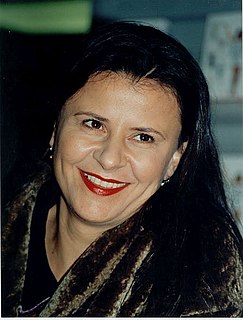A Quote by John Waters
People who want to act rich when they're upper-middle class. They try too hard.
Related Quotes
If you were a successful upper-middle-class Negro girl in the 1950s and '60s, you were, in practice and imagination, a white Protestant upper middle-class girl. Young, good-looking white women were the most desirable creatures in the world. It was hard not to want to imitate them; it was highly toxic, too, as we would learn.
The American middle class always wants to be upper class and is scared to death of being lower class. It's a highly mobile group of people. They're not like the people that want to be shopkeepers forever, have always been shopkeepers and want always to be shopkeepers. These people mostly are insulted by being called middle class.
Stuff Happens.’ That’s the G-rated version. That’s a bumper sticker that only a straight white upper middle class male could have made. Because anyone who isn’t straight, anyone who isn’t male, anyone who isn’t white, anyone who isn’t upper middle class knows that stuff doesn’t just happen. Stuff gets done by people to people. Nothing is a coincidence. Nothing is random. This isn’t osmosis. And so we act as if it’s this passive thing, but yet that’s not the case.
The government decides to try to increase the middle class by subsidizing things that middle class people have: If middle-class people go to college and own homes, then surely if more people go to college and own homes, we’ll have more middle-class people. But homeownership and college aren’t causes of middle-class status, they’re markers for possessing the kinds of traits — self-discipline, the ability to defer gratification, etc. — that let you enter, and stay, in the middle class. Subsidizing the markers doesn’t produce the traits; if anything, it undermines them.







































